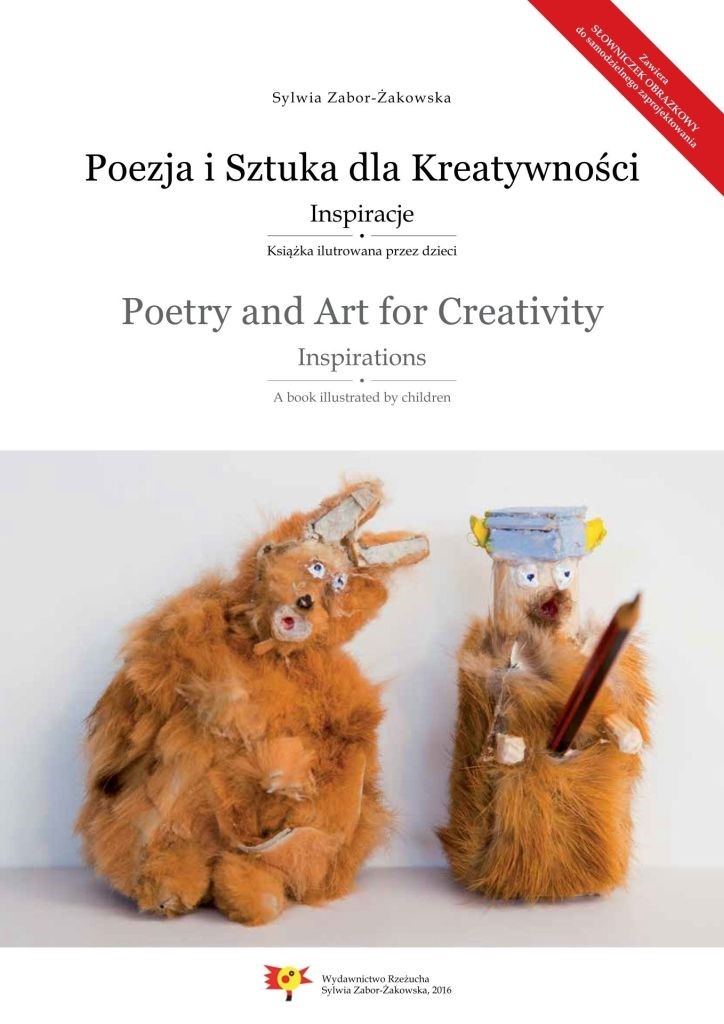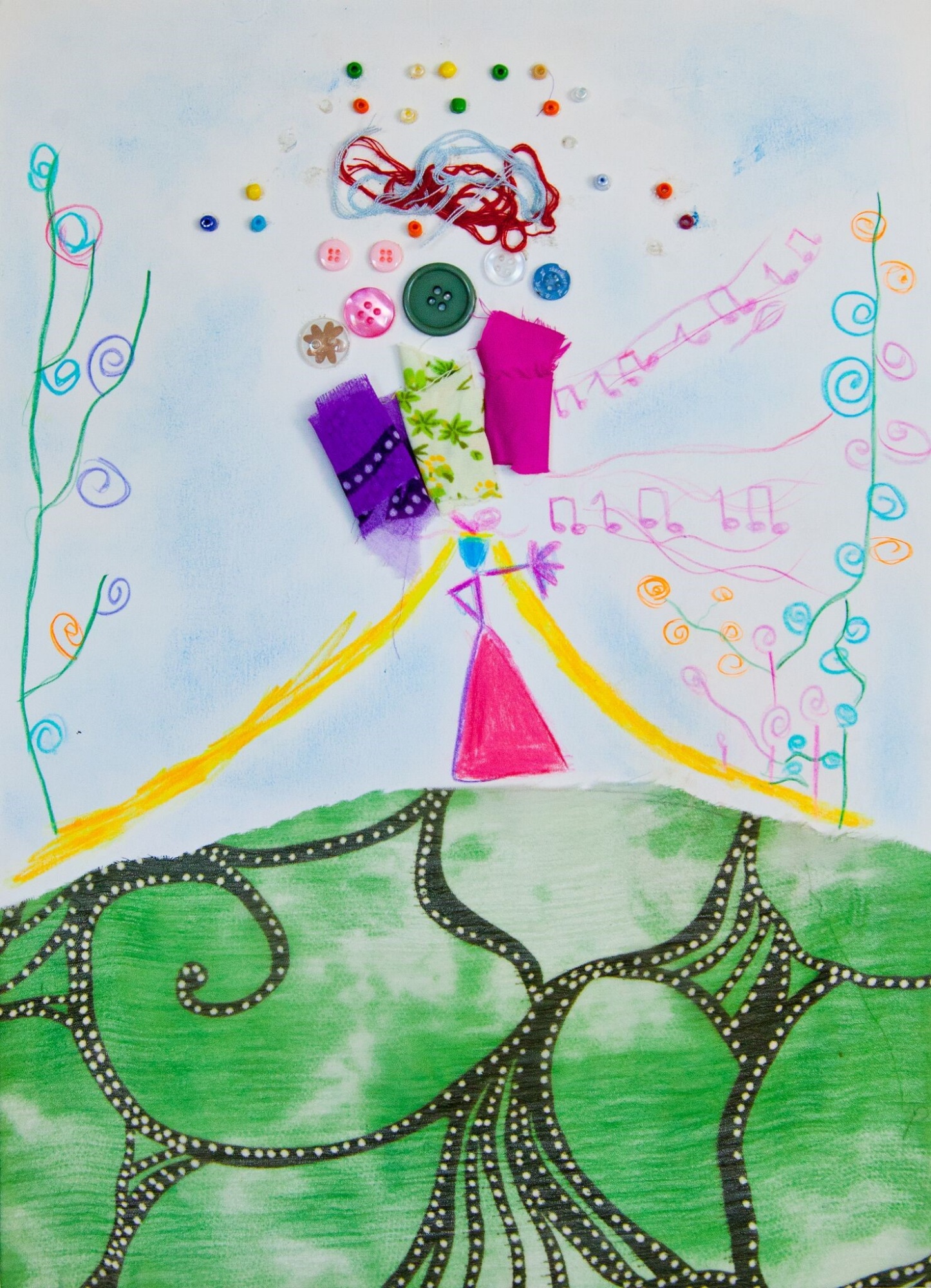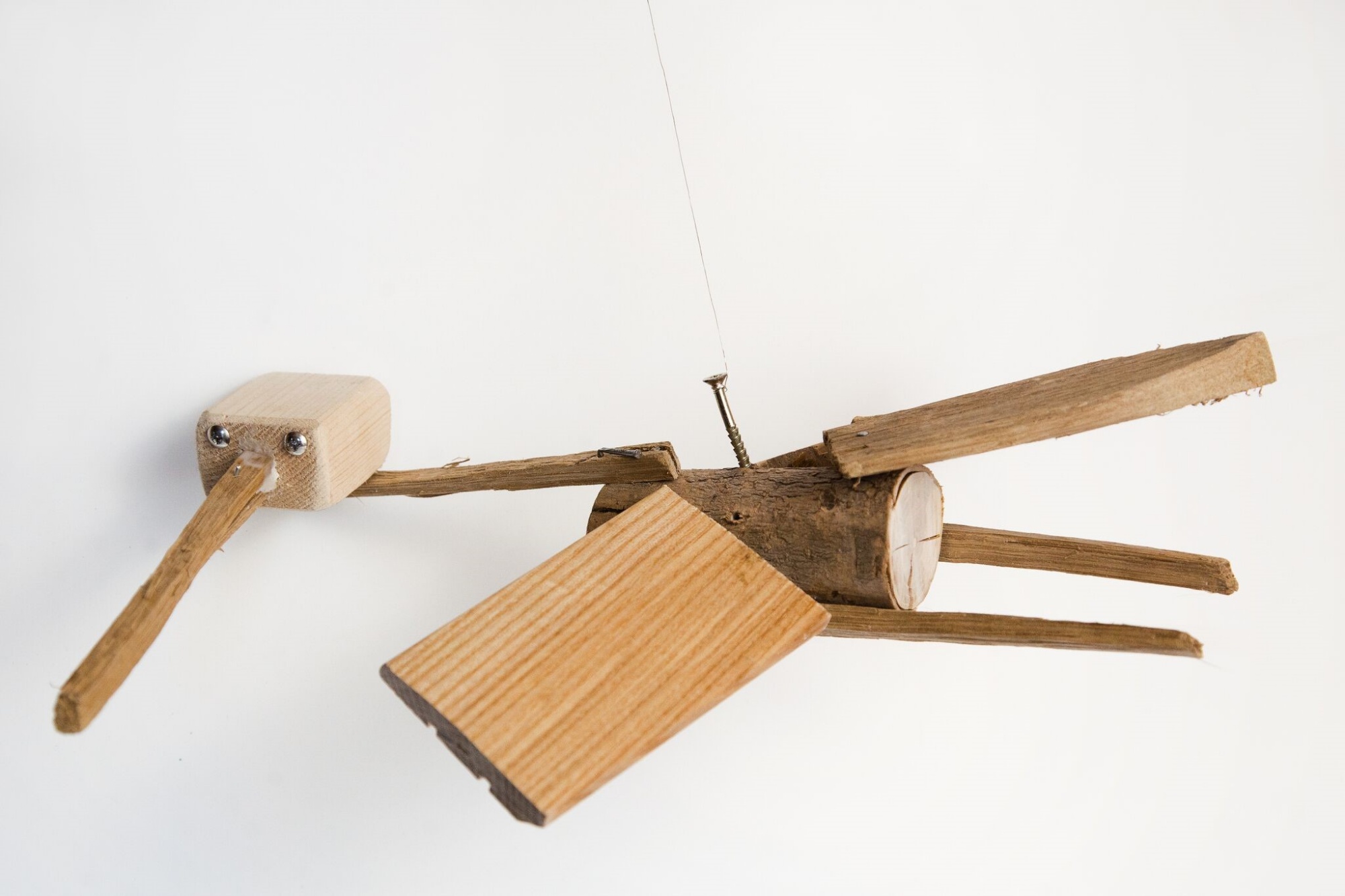- Home
- Publications
- ‘Poetry and Art for Creativity – Inspirations’ - A Book Awarded European Language Label 2016 for Innovation in Language Teaching
‘Poetry and Art for Creativity – Inspirations’ - A Book Awarded European Language Label 2016 for Innovation in Language Teaching
Sylwia’s book ‘Poetry and Art for Creativity’ is first to be awarded the European Language Label in Poland for the idea of teaching English through art. She has published for WSiP, Europa dla Aktywnych, IATEFL Post Conference Journal in Poland and in 2017 she contributed to the British Council publication: ‘Integrating global issues in the creative English language classroom.’ She set up COGITO foundation for gifted children, through which she has organized a national art and language contest ‘JUMP’ and published a bulletin promoting children’s creativity and creative English teaching. She is a member of the C Group and leads an educational studio – ‘Rzeżucha.’http://rzezucha.com/ She’s also a poet and a painter. Email at :studio@rzezucha.com

|
If teaching English and teaching English creatively is your passion, if you look for new, inspirational sources of creative ideas for yourself and for your young and teenage students, if you are eager to discover how effective teaching English through poetry and art can be you are likely to be satisfied with using the book. It contains 15 poems illustrated by children of a painterly character that introduce readers to the world of creation. There are 15 lesson scenarios included with pre-reading and post-reading creative tasks that will help your students develop massively their vocabulary, speaking and writing skills. There is a picture dictionary added to each book to design and illustrate art vocabulary while doing the main task - illustrating English poems. The book was highly appreciated by the European Commission – it was awarded ELL 2016 for its innovative form and ideas that meet the needs of 21 st century learning, in which art is becoming an integral part in educating intelligent, critically thinking, creative, open - minded, cooperative, tolerant, empathetic and responsible global citizens. |
Innovative solutions in the book refer to a few aspects but first of all to the idea of creative teaching English through the correspondence between poetry and art while performing various creative tasks. It boosts children's love of English and art at the same time. The core assignment of each section is to illustrate poems by means of different art tools. Such an activity engages students deeply and it seems that their long-term memory is activated. While painting, drawing or making a 3D composition students complete a stencil of a picture dictionary with artistic notions included in the book. Its simple form allows to cut it into cards and play a language game.
Experienced teachers will know that such projects can be used very effectively to learn vocabulary by labelling the drawn or painted items.
The character of the poems is innovative itself as they vividly depict a joyful and immersive creative process and encourage readers to act creatively, which additionally enhances students' creative potential.
The book is addressed to more experienced rather than novice teachers who share the belief that creativity plays a significant role in language teaching and want to develop themselves. It also hopes to broaden the number of English teachers who would want to employ art and poetry in language teaching. It can also be used by pedagogues of creativity and art teachers who use English as an added value in bilingual schools, cultural institutions, private and language schools.
The book greatly appreciates the role of an independent and creative teacher who loves teaching English creatively also through poetry, whose focus is on less frequent areas of the language as pronunciation, intonation and rhythm. What is more, it is the teacher who decides which elements of creative classes to choose and how to realize them, they will surely need to adapt the scenarios to their teaching context and age group (from 5 year olds to teenagers).
As far as teaching a language is concerned it is a rich source of vocabulary teaching, first by illustrating the poems, when students can name and label all they have drawn, second by designing a picture dictionary. The next important language focus is on practical, active language skills like speaking and writing. As for the poems they can be learnt by heart, transformed into stories, plays or short films.
There is a wide range of class discussion included to develop speaking skills.
English teachers are provided with lots of ideas to explore, discuss and reflect upon, before and after reading the poems.
Featured scenarios combine three educational fields such as the achievements of psychology and pedagogy of creativity with creative artistic tasks, art history and English language teaching. The elements of a creative training like examples of synaesthesia -’ translating’ sounds into colours, interpreting abstract paintings, finding unusual uses of sewing materials or black pepper are to stimulate and develop fluency, flexibility and originality of thinking through training associative, analogical, metaphorical, abstract, deductive and symbolic thinking. The scenarios also stress the role of contact with nature and thus cover other areas of 21st century teaching and learning such as climate change. In addition their aim is to shape sensitivity to some other alarming world’s problems like raising inequalities which can be used to talk about GG nr1 - no poverty.
Suggested creative projects following the main tasks show how different art branches correspond with each other. Writing a theatrical screenplay on the basis of a poem, writing a story from a poem, creating a scenography out of rubbish, making a sculpture help develop creative and critical thinking, imagination, cooperative skills, tolerance and empathy.
The examples of human creativity come from different regions of the world which help to become a global citizen, they also show how creativity develops in poor regions of the world e.g. children's rubbish orchestra, or Lucy Walker film ‘Waste land’ which raise students' awareness of poverty in the world and develops their sensitivity.
The book has been illustrated by children, which is also a new value in creative English teaching, which should encourage students' and teachers' need to act creatively.
Last but not least there is one more factor highlightened - a therapeutical role of contact with art and nature for young people which cannot be overestimated in our rushing world.
To buy this book contact studio@rzezucha.com , www.rzezucha.com
Poems
KNOCK KNOCK
A great canvas is being painted by a hooded artist
accompanied by loads of laughter.
No matter how far you’ll find it bizarre
they are all singing in a choir.
The are all wearing wooden clogs
with which they are beating knock knock.
The choir is settled in an apple tree
which is almost impossible to see.
Their faces get lost among the fruit
so perfect the apples with them suit.
Radiating reddish cheeks
make them unique.
The choir immersed themselves in the song
from dusk to dawn.
That’s why they never found
their clogs that fell down on the ground.
Enormous they were,
cold evening got there.
Their tiny, white feet went cold,
the kind-hearted painter did so.
Although he was barefoot himself
he took off his hood
and wrapped their toes and heels
as carefully as only he could.

HELP YOURSELF TO ANNIE’S SWEETS
The space I’m not going to describe was fine.
And somewhere there’s a tiny maid
was sitting still, having a dream.
Onto her head someone laid
a high heap of different sweets
reaching the sky.
I don’t know why.
I don’t know how.
Let alone to say
the heap overwhelmed the girl.
Countless reels, needles, buttons
made her look like an exotic tatoo.
Then went scissors, blankets, curtains,
quilts and so forth.
Doubtlessly they made a bargain.
She was leaning her tiny head against the elbows
trying to catch a glimpse of visitors.
Hundreds of people wanted
to take and eat some of her sweets.
‘Can you lend me these? I haven’t got any.’
‘Give me some, please my dear Annie.’
Such constant requests made the maid tired.
Yet, she couldn’t be fired.
Where did it all happen?
Where was the space?
Maybe know the answer angels.
Illustrate the poem Honey.
That will make me happy and the whole thing
funny.
You Small, can do it with your Granny.


THREE GOATS OF COURSE
An artist – a sculptor
created one day
from Birch timber
a roaring lion, a touching moose, an ox...
‘And a goat of course? ‘
‘No, not even one goat.’
Wonder-These -Creatures lived in a wood
and crowds of gawkers came here and stood
around them and staring.
‘What were they wondering about?’
‘I don’t know why but they opened their mouths really
wide.’
‘How about the goats?’
‘Poor them, they were bleating loudly and dreaming
about being born from Birch timber and living in the
wood ….. .’
Meanwhile the gawkers at once , as rare was their
chance,
with no baggage at all apart from their thoughts,
which was all,
started the journey into the tale that their imagination
had already made.
Far, far away...
Not only did they have much fun, but also they were
all ages, all that can be found.
I was among them too.
That’s why now I can tell you what they asked me to:
‘Invite Wonder-These-Creatures for a chat
lasting long night.
The lion, the moose and the ox will tell you a lot.’
‘About what?’
‘Take the Birch wood, her bark and twigs
and let the goats in reality bleat.
Stop them from begging the artist.
Let him be proud of his harvest.
He can hardly hear as they bleat so near.
Let him rest after filling your Soul
so generously, fully, and truly.’
to Jozef Wilkon

Please check the Creative Methodology for the Classroom course at Pilgrims website.
Please check the Methodology and Language for Primary course at Pilgrims website.
Short Book Reviews
Hania Kryszewska, Poland‘Poetry and Art for Creativity – Inspirations’ - A Book Awarded European Language Label 2016 for Innovation in Language Teaching
Sylwia Zabor-Zakowska, PolandThe Language Teacher's Golden Companion by Erik L. Dostal
New Titles from Routledge
New Titles from Crown House Publishing, An Award-Winning Independent Publisher
New Downloadable Worksheets
Fergal Kavanagh